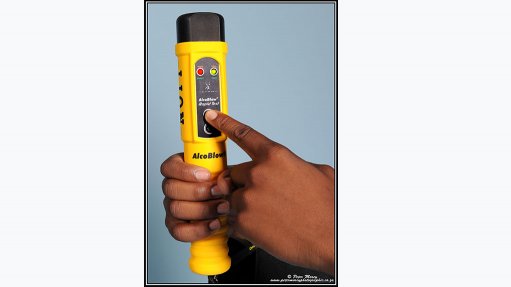Opinion: Policy certainty critical to keep scarce vaccine manufacturing skills in South Africa
In this article, Biovac chief people and brand officer Lauren Bhayat writes that the right policy choices have helped South Africa to become a base for vaccine manufacturing, which can help to grow the economy.
If we’re looking for silver linings after the devastation inflicted by the Covid-19 pandemic, South Africa’s role as a globally recognised base for vaccine manufacturing is a glittering example of how the right policy choices, steady growth in developing long-term skills that matter, and certainty that attracts foreign investment can all work together to help our economy and people.
Africa has ambitious plans to safeguard and enhance the continent’s health security, and South Africa is already starting to play its part in this pursuit. By 2040, the African Union aims to procure 60% of Africa’s vaccinations from local African manufacturers which will help ensure that the continent never again finds itself at the back of the queue for access to lifesaving vaccines. To achieve this, Africa’s vaccine development and manufacturing workforce will need to quadruple, according to the 2022 Framework for Action of the Partnerships for African Vaccine Manufacturing (PAVM).
The Framework candidly confronts that “there is a scarcity of vaccine development and manufacturing talent in Africa”. To gear up the human capital needed, more than 10 000 new full-time employees in around 9 500 new jobs must be acquired, developed and retained over the short, medium and long term, if Africa is to support these essential goals. These skills will need to be deployed across research and development in developing new vaccines, improving existing vaccines, improving processes, and creating new vaccine combinations.
South Africa is well recognised as one of the handful of ‘front runners’ earmarked to roll up sleeves to support and capacitate the continent, to enable the critical success of this biopharma sector. Naturally, the call for action by the PAVM framework is an exciting time for our country’s scientists, technologists, innovators, biologists, infrastructure developers, logistics coordinators, executive managers and future leaders. And so far, not only has South Africa been on the right side of the incremental growth of these skills and roles, but it’s rightfully emerged as a leading example of Africa’s potential to set the standard of excellence the continent’s capacity can deliver to the world.
Biovac, with the Department of Science and Innovation as a key shareholder and collaboration partner, has pioneered the revival of local vaccine development and manufacturing capacity building over the last 20 years. Over this time, the company has sustainably built and embedded a local vaccine skills base, through employing students and talent from the greater pharma industry and converting them into aseptic vaccine manufacturing experts to build a local vaccine industry.
Ultimately, such consistent investment into local skills and infrastructure building has led to South Africa’s ability to quickly and expertly respond to health crises. It was able to do so because of 20 years of far-sighted investment in infrastructure, workforce planning, strategic skills development initiatives, and the firm retention ratio of a workforce that started at the humble size of 25 to over 400 today. It has been enhanced by Biovac’s indirect impact on capacitating contractors and their workforces too.
Perhaps most critically for South Africa’s longer-term growth and prospects, foreign investments from various multinational industry leaders and philanthropic organisations, and through ongoing sophisticated technology transfer collaborations with our global partners Sanofi, Pfizer and the International Vaccine Institute (IVI), has led local Biovac to produce global vaccine ‘blockbusters’ at home on African soil and enabled development of new vaccines, also on home soil.
During the Covid-19 pandemic, South Africa was uniquely positioned on the continent. Building on Biovac’s 20-year experience and incremental growth, it was able to take advantage of technological transfers to rapidly manufacture, package and deliver Covid-19 vaccines because of local efficiencies. The ability to achieve this as an exemplar of what successful local manufacturing looks like in practice hinged on decades of investing in and developing the right skills to manufacture a vaccination at the scale demanded by the global pandemic.
Having this capacity ready to hand was invaluable for better health outcomes during the pandemic. However, moving forward, governments and significant vaccination purchasers across the continent will need to double down on their policy commitments to nurturing local and regional vaccine manufacturing capacity – or face brain drains which undermine the billions invested and the skills that have been matured to date.
The invidious position of the sector in South Africa today paints the risks all too tragically. We have public commitments at the highest levels – including from President Cyril Ramaphosa – that the country will support the African Union in its goal of 60% of vaccines from the continent by 2040. But, fundamentally, the ability of government departments to responsibly procure vaccines in line with this proclamation is not practically supported where it counts: procurement rules that duly prioritise local manufacturing.
This disjuncture means that every entity aspiring to help government deliver this promise has no long-term certainty that their investments, which are necessarily long-term, will deliver meaningful outcomes for commercial partners and the continent’s growing population. That uncertainty creates an instant chilling effect on investment in South Africa’s vaccine localisation efforts, and serves to persuade investors to look elsewhere on the continent. It also means that the skills and jobs so critical to the sector that have been carefully nurtured and grown in South Africa are at risk of flight to other innovation and production hubs.
The people most affected by any job losses in South African vaccine manufacturing will be on the production line – the very same people and skills who were critical game changers in delivering the Covid-19 vaccine in record time. But we cannot assume that skills developed in South Africa will always remain in South Africa. And especially in this globally competitive sector, a glimmer of uncertainty in vaccine manufacturing comes with a big risk of costing the country much-needed jobs and skills.
There is every reason for government to align its policy promises with practical procurement flexibility. South Africa cannot afford to lose the decades of investment already made into our thriving local vaccine manufacturing industry.
Comments
Press Office
Announcements
What's On
Subscribe to improve your user experience...
Option 1 (equivalent of R125 a month):
Receive a weekly copy of Creamer Media's Engineering News & Mining Weekly magazine
(print copy for those in South Africa and e-magazine for those outside of South Africa)
Receive daily email newsletters
Access to full search results
Access archive of magazine back copies
Access to Projects in Progress
Access to ONE Research Report of your choice in PDF format
Option 2 (equivalent of R375 a month):
All benefits from Option 1
PLUS
Access to Creamer Media's Research Channel Africa for ALL Research Reports, in PDF format, on various industrial and mining sectors
including Electricity; Water; Energy Transition; Hydrogen; Roads, Rail and Ports; Coal; Gold; Platinum; Battery Metals; etc.
Already a subscriber?
Forgotten your password?
Receive weekly copy of Creamer Media's Engineering News & Mining Weekly magazine (print copy for those in South Africa and e-magazine for those outside of South Africa)
➕
Recieve daily email newsletters
➕
Access to full search results
➕
Access archive of magazine back copies
➕
Access to Projects in Progress
➕
Access to ONE Research Report of your choice in PDF format
RESEARCH CHANNEL AFRICA
R4500 (equivalent of R375 a month)
SUBSCRIBEAll benefits from Option 1
➕
Access to Creamer Media's Research Channel Africa for ALL Research Reports on various industrial and mining sectors, in PDF format, including on:
Electricity
➕
Water
➕
Energy Transition
➕
Hydrogen
➕
Roads, Rail and Ports
➕
Coal
➕
Gold
➕
Platinum
➕
Battery Metals
➕
etc.
Receive all benefits from Option 1 or Option 2 delivered to numerous people at your company
➕
Multiple User names and Passwords for simultaneous log-ins
➕
Intranet integration access to all in your organisation




















